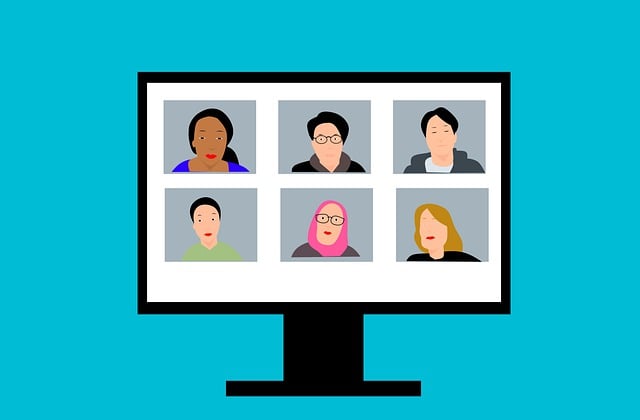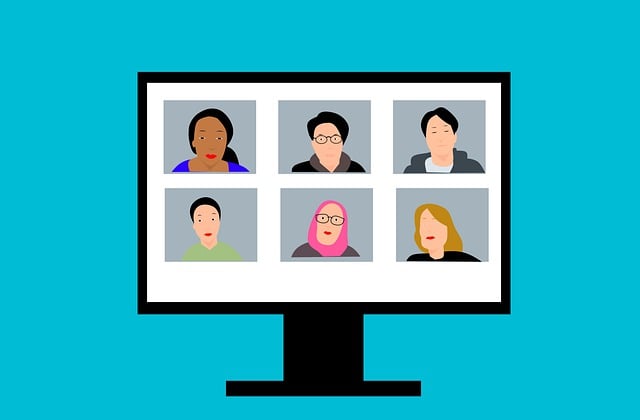Semaglutide, a groundbreaking diabetes medication, has spurred growth in virtual healthcare services through telemedicine platforms. Semaglutide online consultations offer specialized guidance, personalized treatment plans, and remote prescription management globally, expanding access to care, especially in underserved areas. Key challenges include ensuring patient privacy and data security via robust encryption, secure communication channels, and comprehensive data storage. Virtual appointments foster open communication and improve patient engagement, allowing individuals to manage their condition from home. Regulatory compliance is crucial for legitimate semaglutide online consultation platforms. The future looks promising with technological advancements enabling more personalized, accessible, and efficient virtual care for diabetics.
In today’s digital era, secure virtual healthcare services for semaglutide therapy are gaining popularity. This article explores the growing importance of online consultations for managing this injectable medication, addressing key challenges and benefits. From patient privacy concerns to regulatory compliance, we delve into best practices for remote monitoring and follow-ups, ensuring safe and effective semaglutide management. Additionally, we look ahead to future trends in virtual care, highlighting the potential for enhanced accessibility and improved patient outcomes through technology.
Understanding Semaglutide and Its Growing Popularity

Semaglutide, a groundbreaking medication, has been transforming the lives of many individuals with type 2 diabetes. This injectable drug mimics a natural hormone that regulates blood sugar levels, offering a more sustainable approach to glycemic control compared to traditional insulin therapy. As research continues to unveil its benefits, semaglutide’s popularity has skyrocketed worldwide. Its ability to promote significant weight loss, reduce cardiovascular risks, and improve overall metabolic health has made it a preferred choice for many patients and healthcare providers alike.
The growing demand for semaglutide has led to an increase in virtual healthcare services, particularly online consultations. This shift towards digital care allows patients to access specialized professionals remotely, ensuring convenient and timely support. With the help of telemedicine platforms, individuals can now discuss their treatment options, receive personalized guidance, and even obtain prescriptions for semaglutide without physically visiting a clinic. This innovative approach expands access to quality healthcare, especially in remote areas or for those with limited mobility.
Challenges of Providing Secure Virtual Healthcare Services

Providing secure virtual healthcare services for semaglutide, a medication often prescribed for diabetes management, comes with its unique set of challenges. One of the primary concerns is ensuring patient privacy and data security during online consultations. As patients share sensitive health information, protecting this data from unauthorized access or breaches is paramount. This includes implementing robust encryption protocols, secure communication channels, and comprehensive data storage measures to safeguard personal health records.
Another challenge lies in maintaining effective patient-provider interactions virtually. Semaglutide therapy requires close monitoring and adjustments based on individual responses, necessitating clear and consistent communication. Virtual healthcare platforms must facilitate real-time discussions, enable easy sharing of medical images and reports, and ensure that patients receive personalized guidance to adhere to their treatment plans consistently, bridging the gap between traditional in-person visits.
The Benefits of Online Consultations for Semaglutide Therapy

The shift towards virtual healthcare has brought numerous advantages for patients undergoing Semaglutide therapy. Online consultations offer a convenient and accessible way to manage this specific medication, ensuring patients can receive expert guidance from the comfort of their homes. This modern approach streamlines the process, allowing healthcare professionals to provide personalized care, answer queries, and monitor progress effectively.
With virtual appointments, patients can save time and avoid travel, making it particularly beneficial for those with limited mobility or living in remote areas. Moreover, online consultations encourage open communication, where individuals feel more at ease discussing sensitive health topics. This enhanced accessibility and comfort level contribute to improved patient engagement and adherence to Semaglutide treatment plans.
Ensuring Patient Privacy and Data Security

In the realm of virtual healthcare, especially for medications like semaglutide, patient privacy and data security are paramount. When engaging in semaglutide online consultation, sensitive medical information must be safeguarded to ensure patient confidentiality. Reputable virtual healthcare platforms employ robust encryption technologies to protect data during transmission and storage, adhering to stringent regulatory standards such as HIPAA (Health Insurance Portability and Accountability Act) in the US or GDPR (General Data Protection Regulation) in Europe.
This secure environment fosters trust between patients and healthcare providers, encouraging open discussions about treatment plans. It also includes multi-factor authentication measures for users and secure data backup protocols to prevent unauthorized access or loss of critical information. Such stringent security measures are vital to the success of virtual healthcare services for semaglutide, ensuring that patients receive safe, effective care while maintaining the integrity of their personal health data.
Best Practices for Remote Monitoring and Follow-ups

Remote monitoring and follow-up care are integral parts of providing secure virtual healthcare services for patients on semaglutide, a medication often prescribed for diabetes management. Best practices should focus on establishing clear communication channels to ensure patient adherence and educate them on self-monitoring techniques. Regular virtual check-ins allow healthcare providers to remotely assess patient progress, adjust treatment plans as needed, and address any concerns or side effects arising from semaglutide use.
Implementing digital tools for remote monitoring can include using specialized apps or platforms that track blood glucose levels, weight changes, and other relevant health markers. These technologies empower patients to actively participate in their care, while providing physicians with valuable data for informed decision-making during online consultations.
Regulatory Framework and Compliance Considerations

The regulatory landscape for virtual healthcare services, particularly those involving prescription medications like semaglutide, is a complex and ever-evolving terrain. Ensuring compliance with these regulations is paramount to providing legitimate and safe services. In many jurisdictions, online consultation platforms must adhere to strict guidelines to offer semaglutide prescriptions remotely. These include requirements for secure data transmission, patient identity verification, and detailed medical record-keeping.
Compliance considerations extend beyond technical infrastructure. It involves rigorous training for healthcare providers to conduct comprehensive risk assessments, manage potential side effects, and offer adequate patient education during virtual semaglutide prescriptions. Additionally, platforms must implement robust privacy measures to protect sensitive health information, ensuring that data breaches or unauthorized access are minimized. Navigating these regulatory demands is crucial for establishing trustworthy virtual healthcare services for semaglutide.
Future Trends in Virtual Care for Semaglutide Management

The future of virtual healthcare for semaglutide management looks promising, with continuous advancements in technology driving innovations. Semaglutide online consultations are set to become more prevalent, offering patients and healthcare providers alike enhanced accessibility and flexibility. Through secure video conferencing platforms, patients can receive personalized guidance on their semaglutide treatments, ask questions, and share concerns with medical professionals from the comfort of their homes.
As digital health trends evolve, we can expect improved integration of wearable devices and mobile apps that monitor semaglutide-related metrics. These tools will facilitate real-time data sharing, enabling healthcare providers to make informed decisions during virtual consultations. Such seamless connectivity promises better patient outcomes, increased convenience, and a more efficient management system for both patients with diabetes and their care teams.
